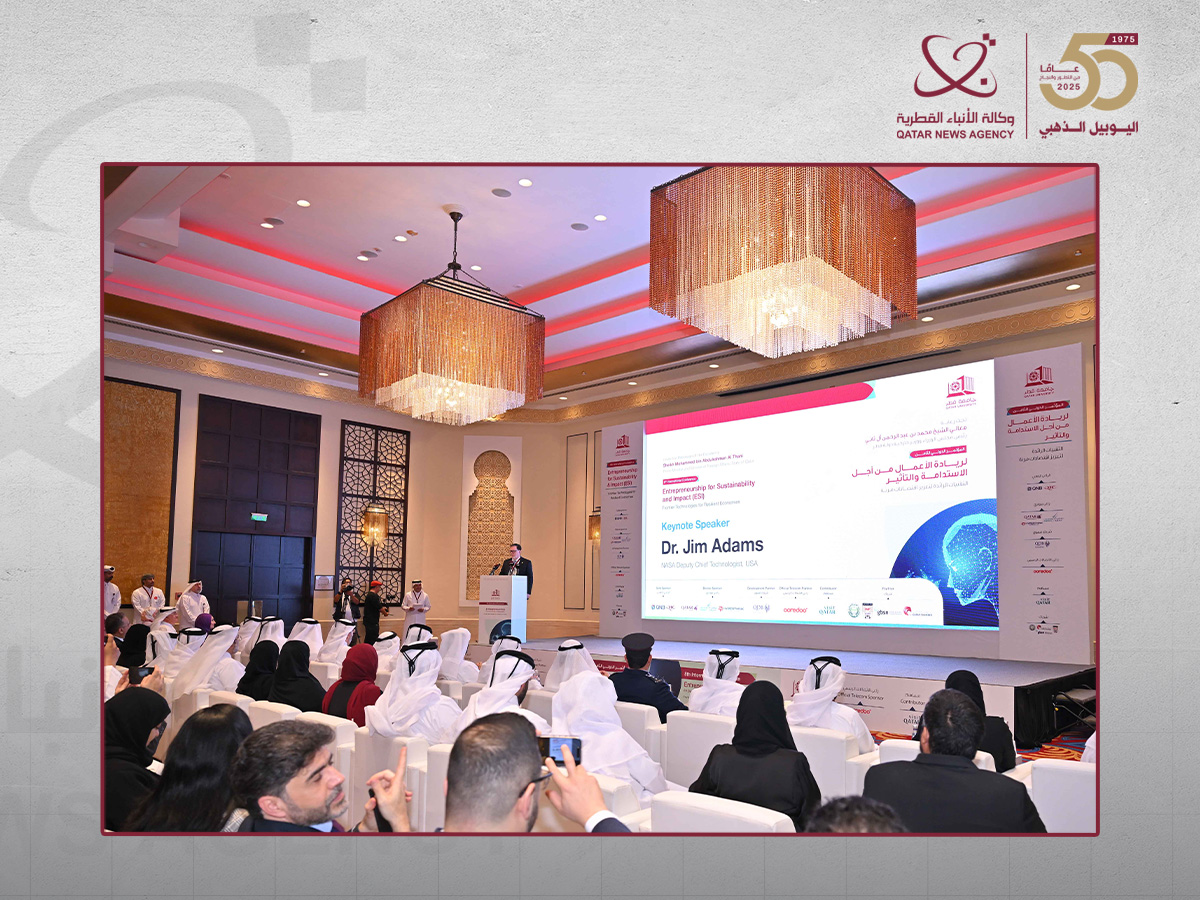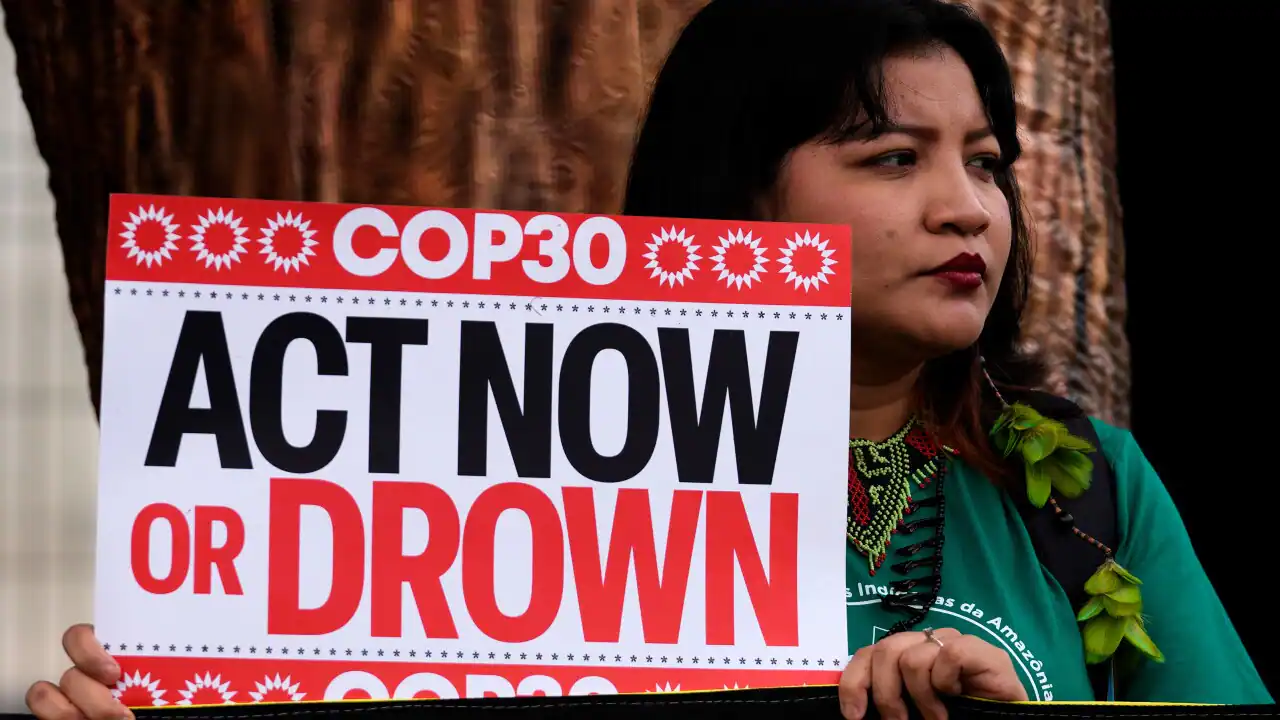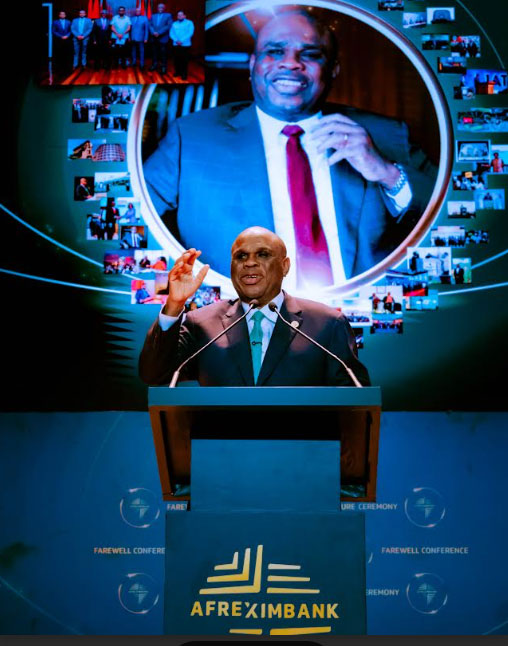Copyright qna

Doha, November 09 (QNA) - Under the patronage of HE Prime Minister and Minister of Foreign Affairs Sheikh Mohammed bin Abdulrahman bin Jassim Al-Thani, Qatar University (QU) launched the 8th International Conference on Entrepreneurship for Sustainability and Impact (ESI 2025), organized by the College of Business and Economics under the theme "Frontier Technologies for Resilient Economies." The opening ceremony was attended by HE Minister of Commerce and Industry, Sheikh Faisal bin Thani bin Faisal Al-Thani, and HE President of QU, Dr. Omar Mohammed Al Ansari, along with a distinguished group of senior officials and international experts. Recognized as one of the region’s leading academic gatherings, ESI 2025 convenes over 600 scholars, researchers, policymakers, and business leaders from more than 50 countries to explore how emerging technologies such as Artificial Intelligence, Blockchain, the Internet of Things, Quantum Computing, Robotics, and Advanced Data Analytics are shaping the future of business, entrepreneurship, and sustainability. In her keynote remarks, Prof. Rana Sobh, Dean of the College of Business and Economics and Conference Chair, emphasized the urgency of fostering innovation and adaptability in a world defined by rapid technological disruption and global uncertainty. "Resilience is not the absence of crisis—it is the ability to evolve through it. The technologies we discuss here—AI, quantum computing, blockchain, and others—are not just tools of efficiency; they are catalysts for imagination and progress. Yet, their success depends on people—their creativity, wisdom, and courage to act responsibly. ESI 2025 is a forum for shaping that collective vision: to build economies that are strong, inclusive, and forward-looking," she stated. Prof. Sobh also reflected on the significance of this year’s theme, noting that frontier technologies offer not only economic benefits but also moral and social imperatives to ensure equitable development, saying, "At QU, our mission extends beyond research outputs. We aim to transform knowledge into societal value—supporting innovation ecosystems that strengthen resilience at every level, from individual entrepreneurs to national policy frameworks." The Business Consortium, a distinguished feature of ESI 2025, brought together policymakers, entrepreneurs, and executives from across sectors to discuss Fintech and Financial Transformation, Government Institutional Excellence in the Era of Innovative Technology, Technology for Climate and Sustainability, and AI in Education and Humanitarian Affairs. These sessions provided a platform for actionable dialogue between academia and industry, addressing topics such as data ethics, smart infrastructure, and the potential of digital technologies to promote transparency, inclusiveness, and sustainable governance. In his remarks, Dr. Mohammed El Gammal, Chair of the ESI 2025 Organizing Committee from QU, highlighted the continued success and growing global participation of the conference, "The International Conference on Entrepreneurship for Sustainability and Impact is now in its eighth consecutive year, and this edition has attracted over 650 research papers from around the world. A dedicated Doctoral Day brought together PhD students from more than 58 countries, who presented their research ideas and participated in intensive training workshops. This year’s conference is distinguished by its Business and Industry Forum, where policymakers, entrepreneurs, and corporate leaders engage with academics to identify innovative solutions to challenges in entrepreneurship, sustainability, and artificial intelligence in Qatar." Dr. Al Gammal further elaborated on the conference’s key outcomes, stating, "The main outcomes of ESI 2025 revolve around three core areas. First, nurturing a new generation of doctoral students and early-career researchers to serve the Middle East and the global academic community. Second, producing policy recommendations to empower entrepreneurship and sustainability ecosystems, particularly in developing countries where Qatar plays a leading role. Third, exploring advanced technological applications that support sustainable and entrepreneurial practices—developing frameworks for integrating emerging technologies such as AI and Blockchain into decision-making within entrepreneurial institutions to enhance sustainability and achieve the UN Sustainable Development Goals regionally and globally." Dr. Jim Adams, a former Deputy Chief Technologist at NASA, gave the opening keynote address. He shared insights from his extensive global experience in space technology and innovation, emphasizing that the true impact of technology lies in our ability to empower people to use it effectively. I hope that conferences like ESI inspire the next generation to dream bigger—to think beyond limitations and find creative, ethical solutions to global challenges. Education and mentorship are the engines of innovation. When students believe their ideas can change the world, they often do." The conference also featured Dr. Sui Sui (Toronto Metropolitan University, Canada), Dr. Khaled Hussainey (Bangor Business School, UK), Dr. Adel Ben Youssef (Université Côte d’Azur, France), and Dr. Arman Eshraghi (Cardiff Business School, UK), among other leading academics who addressed digital entrepreneurship, sustainable finance, circular economy strategies, and global supply-chain resilience. Dr. Amna Al Ansari, Director of the Strategic Innovation, Entrepreneurship, and Economic Development Office at QU, highlighted the university’s growing role in cultivating innovation among students and researchers. "Through its innovation and entrepreneurship framework, QU ensures that creative ideas are not confined to classrooms—they are transformed into startups, social enterprises, and technologies with real impact. Student-led innovations, such as assistive technologies for the deaf and visually impaired, are prime examples of how research at QU is making a tangible contribution to national development and global knowledge." In parallel sessions, participants presented over 90 peer-reviewed research papers across 17 thematic tracks, addressing subjects ranging from digital transformation and smart cities to circular economy and climate adaptation. The Meet the Editors forum allowed early-career researchers to engage with editors from leading international journals, while the PhD Symposium offered doctoral candidates mentorship and feedback from senior scholars. The conference concluded with a Women Entrepreneurs Forum, celebrating female innovators and researchers who are advancing inclusive economic development in the region. (QNA)



